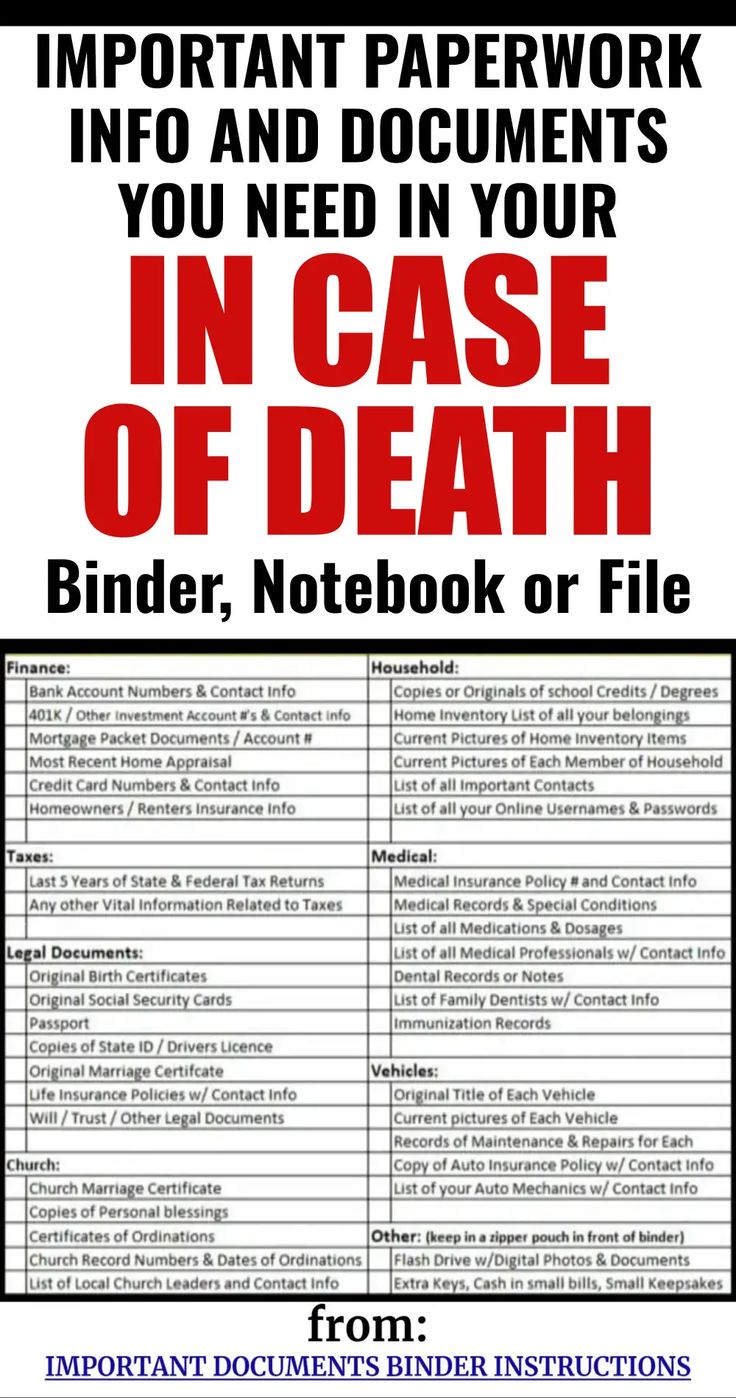7 Essential Tips on How Long to Save Paperwork

Ever wondered how long to keep important documents? Or what happens if you throw them away too soon? Managing paperwork isn't just about organization; it's also about being smart with compliance, potential audits, and future needs. Here are seven tips to guide you through the labyrinth of document retention.
1. Tax Records: Understanding the IRS Guidelines

When it comes to tax documentation, the Internal Revenue Service (IRS) has specific retention guidelines:
- 3 years: You should keep records for at least three years if you file a return without claiming any fraud.
- 6 years: If you fail to report income that equals more than 25% of your gross income, retain records for six years.
- Forever: If you don’t file a return or file a fraudulent one, never throw away those tax documents. IRS can audit you indefinitely.

💡 Note: Always verify with the latest IRS publications or a tax advisor for the most accurate information.
2. Business Records: A Tailored Approach

Businesses face a different set of rules when it comes to records retention:
- Payroll and HR records: Retain for three years post-termination in compliance with Fair Labor Standards Act (FLSA).
- Health and safety documents: Keep for a minimum of 30 years as mandated by OSHA.
- Contracts: Retain for the life of the contract plus any statute of limitations period.
- Audit, incorporation, and accounting records: Often advised to keep permanently, although you can scan or microfilm them for space management.
3. Home Ownership and Property Documents

Homeowners should be meticulous about their property-related documents:
- Deeds, titles, purchase, and improvement receipts: Keep indefinitely. These documents are critical for establishing your ownership history and potential capital gains.
- Mortgage documents: Hold onto these until the loan is paid off, and retain records for any home equity loans for a minimum of 3 years post-repayment.
- Home warranties: Keep as long as the warranty is valid.
4. Healthcare Documentation

Medical records have their own set of considerations:
- Medical bills and insurance policies: Retain for at least 1 year after payment, or 3 years if you’re claiming deductions.
- Physician’s notes and test results: While HIPAA laws allow for permanent retention by providers, personal copies are beneficial to keep for chronic or recurring conditions.
- Immunization records: Keep these forever for adults, and for children until they reach adulthood.
5. Investment Papers: Keeping Track of Gains

Managing investment documents involves several considerations:
- Year-end statements and trade confirmations: Keep these for 7 years to verify the cost basis on your investment sales.
- Prospectuses, investment reports: Generally, these can be disposed of when you no longer hold the investment.
- Retirement account records: Maintain copies of contributions, distributions, and related documents for life.
6. Wills, Trusts, and Estate Planning Documents

These documents govern one’s financial affairs post-life:
- Wills and trusts: Keep originals forever, consider storing them in a safe deposit box or with your attorney.
- Powers of attorney: Retain these documents indefinitely.
- Life insurance policies: Keep them as long as the policy is in force or until the insured’s death.
7. Legal and Compliance Records

Legal documents may require retention due to potential future litigation or compliance:
- Litigation or potential legal issues: Keep these documents indefinitely.
- Contracts, licensing agreements: Keep for the statute of limitations or longer if specified in the contract.
- Compliance with regulations: Depending on the industry, retain these for as long as mandated by regulatory bodies.
Having walked through the landscape of document retention, one can see the importance of organization. Keeping documents for too long can clutter your life, while disposing of them too soon can result in missed opportunities or legal repercussions.
How long should I keep my tax returns?

+
Generally, you should keep your tax returns and related documents for at least three years, but there are exceptions where you might need to keep them longer, like if you’ve omitted a significant portion of income or if you’ve filed a fraudulent return.
Can I shred my financial statements?

+
Yes, financial statements not required for tax purposes or ongoing accounting can be shredded or disposed of securely after one year, although keeping them longer might be useful for historical reference.
Should I keep medical records?

+
Keep records related to chronic conditions, legal purposes, or insurance claims indefinitely. Otherwise, you might consider retaining medical bills and insurance policies for 1 to 3 years.
What should I do with expired warranties?

+
Once an item’s warranty expires, you can dispose of the warranty document securely, as long as you’re certain there are no potential legal issues or claims against it.